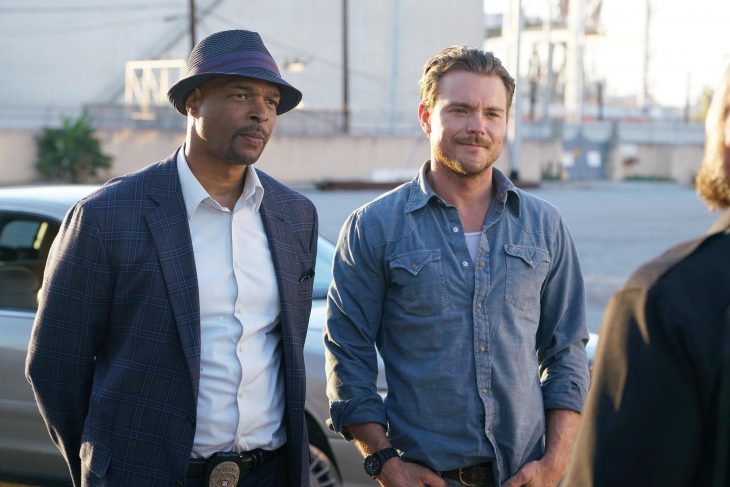
TORONTO – The big story out of the recent Los Angeles Screenings, as reported by Cartt.ca, was Canadian broadcasters are now horse-trading for new American shows against Netflix as video streaming continues to transform TV.
The result had the Canadians paying more to their Hollywood suppliers for digital rights as they continue to fend off the streaming giant. However, the way top Rogers Media execs tell it, Netflix didn't out-muscle or out-fox the Canadians in Los Angeles.
If anything, Netflix is moving to embrace their network TV model.
"Netflix was looking to diversity from SVOD and looking to get into day-and-date. And that's new," Colette Watson, vice president, television and broadcast operations at Rogers Television, told Cartt.ca on Monday morning ahead of Rogers' Upfront presentation to advertisers in Toronto.
Digital disruption is a reality, Rogers Media president Rick Brace conceded, as his own, and other Canadians broadcasters, struggle against Netflix with upstart SVODs, but Internet TV isn't replacing linear TV anytime soon, as conventional and specialty TV continues to grab the lion's share of Canadian eyeballs, he argued.
"We're still the core piece of business for the studios internationally. It's not Netflix," he said. Brace likened Rogers Media to Kodak, which remained in film even as it made a painful digital transition.
"You're still making virtually all of your revenue from the legacy product, in this case from television and radio… but you know there's a move out there, and you got to get on board and you've got to ride that train,” he explained, “and the real challenge and the real trick is: At what point do you make the cross over?"
So Rogers continues to bolster City and its specialty channels as Netflix for the first time competes head-on with the Canadians for programming that traditionally ended up on legacy TV. "That's new. It's serving to drive the prices up," Brace said of the Netflix competition – and digital prices will rise still further when Amazon Prime and Hulu enter the Canadian market, he added.
(Ed note: Rumours persist that Amazon will launch a version of its video service in Canada some time this summer.)
However, Brace doesn't see his network becoming a digital-first player for at least another four or five years. "We intend to stick with it (conventional TV)… We want to make City stronger. We don't want to make it irrelevant," he said.
"Netflix was looking to diversity from SVOD and looking to get into day-and-date. And that's new.” Colette Watson, Rogers
As Rogers' Cancon programming dollars go mostly to Viceland, the broadcaster unveiled six new Canadian-produced series, including Nirvanna The Band The Show, for its Canadian specialty channel
Brace is bullish about his cable channel partnership with Vice Media, even though it remains in free preview until September 30.
That means Viceland has yet to reveal a potential payback. For a big payday, the headline for Rogers Monday was buying three new dramas at the Screenings for City: 24: Legacy, Prison Break and Lethal Weapon (pictured).
The strategy is balancing a City primetime schedule top-heavy with comedies and only one drama, Scorpion.
"We're known for being a comedy channel, but it creates not a fully-rounded experience," Hayden Mindell, vice president of TV programming and content at Rogers Media, explained. Scheduling-wise, replacing cancelled half-hour comedies means juggling shows, which is reduced when holes arise for one hour dramas.
"We're a fun and entertaining channel. We don't do slow and heavy shows," Mindell added.
Rogers' commitment to linear TV was also underlined by Al Dark, senior vice-president of media sales, announcing the broadcaster had signed up the AOL One self-serve platform and the Videology ad tech firm to help advertisers execute TV ad buys in the conventional and specialty TV space.
But question marks remain. Hollywood studio execs noted Brace's absence from the LA Screenings, leaving Watson and Mindell to largely pick up a slate of 20th Century Fox shows as part of a long-standing output deal. To the studio execs, that signaled Brace, the man with the chequebook, was pulling back on U.S. network series spending amid a softening ad market and digital competition.
Not so, Brace countered. "I have a lot of confidence in my team. They brought back three of the five top shows from Hollywood. And there's lots of things I can better be doing with my time," he said, alluding to The Shopping Channel, Sportsnet and other platforms.
"If you gave us the same opportunity today, even after the season we had, would we do the deal again? In a heartbeat.” Scott Moore, Sportsnet and NHL properties
Here Scott Moore, president of Sportsnet and NHL properties at Rogers Media, continues to do the heavy-lifting to get a payback for Sportsnet after a giant bet on NHL hockey led this season to falling ad rates as Canadian teams struggled. "If you gave us the same opportunity today, even after the season we had, would we do the deal again? In a heartbeat," Moore said of the blockbuster NHL rights deal.
"It's a major reason why Sportsnet is number one. We have Canada's favorite sport locked up for ten more years," he added. Moore argued media reporting on the NHL deal loses sight of its entire business model, and audiences, which aren’t just about TV.
"People talk about great the Raptors were this year, and they were. We're thrilled, because we have a piece of that. But last season, their games were drawing, at best, 300,000 (viewers). And a bad night for Hockey Night in Canada is 1.2 million," he insisted.
Hockey is still king with Canadian TV viewers, "and it will be a stronger king when the Canadian teams are playing well," and especially the Toronto Maple Leafs, Moore said.
The Canadian Upfronts continue this week with presentations by rivals Bell Media and Corus Entertainment.